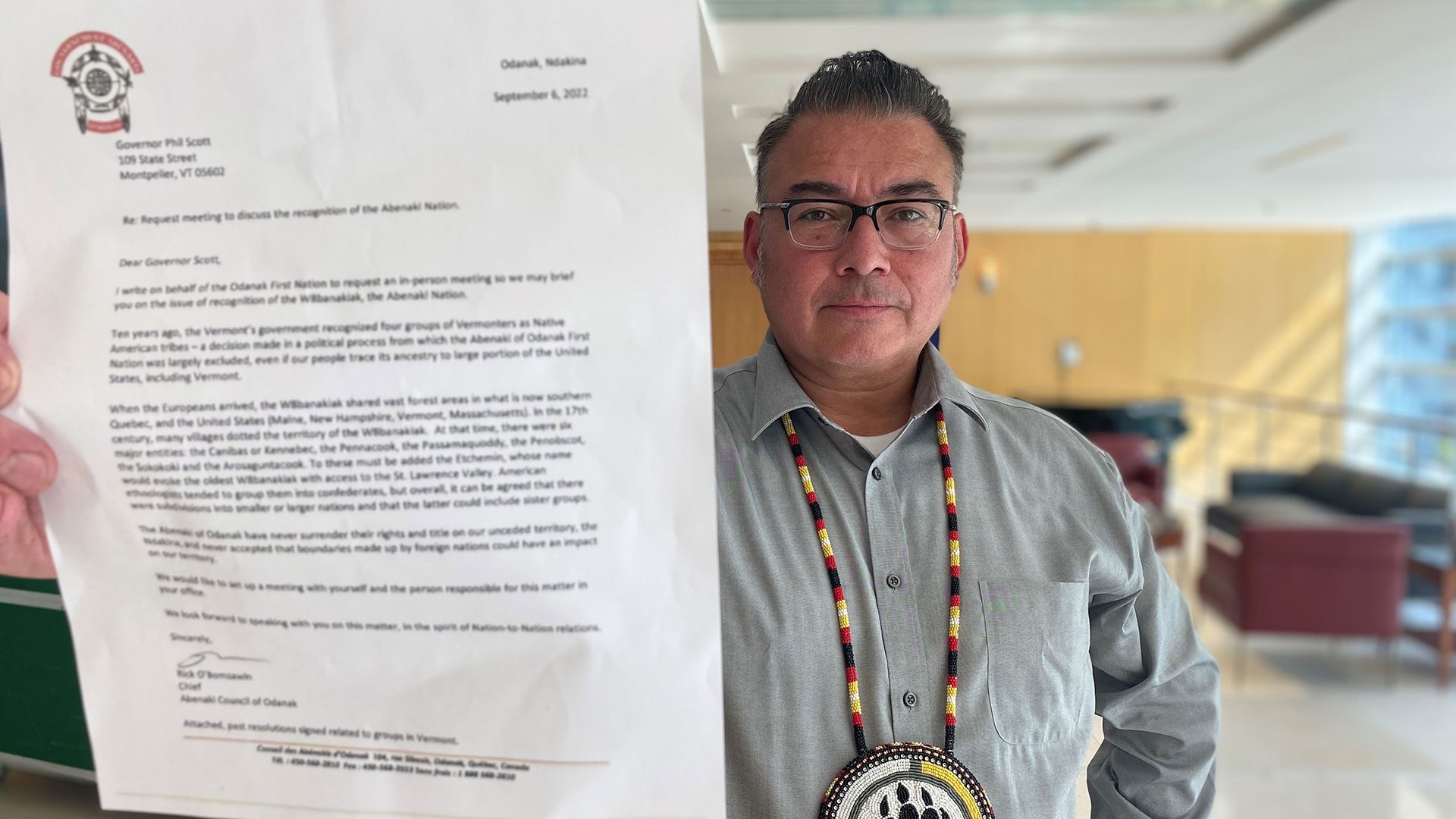The Abenaki First Nation of Odanak in Quebec is raising concerns over state recognition of self-proclaimed Abenaki groups in the United States.
“We have grievances with the State of Vermont and their policy of state recognition of four tribes that claim to be Abenaki,” explained Jacques Watso, a councillor for Odanak, an Abenaki community about 120 km northeast of Montreal.
“They’re deceiving the Vermont population by claiming a heritage that is not theirs,” said Watso following a speech given by Vermont Governor Phil Scott in Montreal on Wednesday.
Watso was able to briefly meet Governor Phil Scott and present his entourage with a letter outlining Odanak’s concerns.
Scott committed to reading the letter, but not to meeting with the Odanak council at a future date.
“It’s the first I’ve heard of this, so I’m a bit surprised, but again we will take a look at this and the legislature will be reflecting on this and if they see fit to change the law they can,” said Scott in a statement to APTN.
Abenaki ancestral territory consists of large swaths of what it is now known as south eastern Quebec and New England.
In 2011, Vermont recognized four different groups on its side of the international border as Abenaki.
Back then Scott was the state’s Lieutenant governor.
“We, at the legislature, were working on this piece of legislation that I signed. It was all for good intentions, we didn’t know that there was any controversy, but we’ll take a look and see where we go from here,” said Scott.

Watso said that there’s a reason why the four organizations claiming Abenaki status do not have federal recognition.
Among other criteria, U.S. federal recognition requires showing evidence of self governance since at least 1900.
All four of the self-proclaimed Abenaki groups in Vermont were formed in modern times.
Membership applications can be downloaded on some of their websites and prospective members need to submit their genealogy for examination before being accepted.
Watso says when Odanak was approached by some self-proclaimed Abenaki in the ‘90s, they initially welcomed them to visit the community.
“When we started asking questions, who, to which family are you connected, and who is your ancestor, and basically they were French Canadian and they had no Native ancestry at all,” said Watso.
Currently, the Abenaki recognized in Vermont have the right to make and sell crafts and can receive benefits such as artist grants.
Complicating matters is that there are Abenaki with ties to Odanak living in New England.
Watso said those that have legitimate ties are welcome to reach out to Odanak, but that the rest have no business representing the Abenaki nation.
“Basically they’re a bunch of settlers that are trying to claim a history and a heritage that is not theirs,” said Watso “But they are also promoting a culture that is not theirs in schools and in the Vermont society in general and that is very hurtful because that is cultural appropriation and nor cultural appreciation.”
Most of the state-recognized Abenaki groups did not respond to requests to comment. One of the state-recognized groups, The Elnu Abenaki Tribe, contacted APTN News but an interview was unable to be arranged before publication.
Vermont’s legislature will commence sitting again in January.
Editor’s Note: A previous version of this article stated that none of the four state-recognized Abenaki groups returned our requests for comment. In fact, the Elnu Abenaki Tribe did reach out, but the email, unfortunately, went to a junk e-mail folder. APTN regrets the error.”









